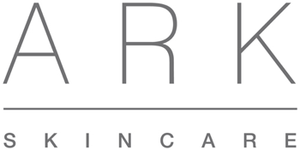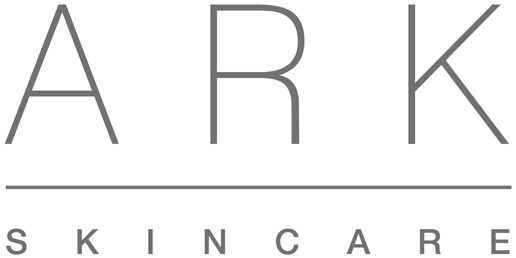The Ultimate SPF Skincare Guide
The importance of protecting your skin from sun damage and how to best incorporate SPF into your skincare routine.
We all know that suncream is a must-pack holiday item, but not everyone knows how to use it properly. Poor or infrequent application can easily lead to burning and long-term skin damage - or even cancer, which is why we've put together this guide of often-overlooked sun protection essential facts. Understanding our skin can be key to understanding our overall health.
What are UV rays and how to they affect the skin?
Ultraviolet (UV) radiation is a form of electromagnetic radiation that comes from the sun. There are two types on UV rays which are known to affect skin – UVA and UVB.
UVA rays have a lower amount of energy and can cause indirect damage to cell’s DNA. They are also linked to long-term skin damage such as wrinkles, fine lines and signs of premature aging.
UVB have a higher level of energy and are the rays which are responsible for sun burn. They can damage the skin cells directly and are responsible for most types of skin damage and cancer.
SKIN ESSENTIALS
Skin Protector SPF 30 Primer
(30ml)
Discover our 5-in-1 SPF, Moisturiser & Primer
Find out more about our SPF 30 Primer...
ARK Skincare’s Skin Protector SPF 30 Primer is one of our hero products. Labelled as a favourite by many of our customers, this award winning formulation is perfect for everyone. It can also be used as a beautifully light daily moisturiser, make-up primer and a facial sunscreen all in one, making it ideal for anyone looking for a simple yet effective skincare routine.
Our SPF 30 Primer is classified as a chemical SPF. We chose this route as we believe it is important to offer a product with broad spectrum protection. This means that skin is shielded against both UVA and UVB rays and is given the utmost protection.
Whilst the formulation contains the necessary compounds to offer effective protection, it is still 65% natural as it contains active natural ingredients to hydrate, offer antioxidant protection, and provide a silky smooth luminous finish to the skin.
Hyaluronic Acid optimises the circulation of water throughout all layers of the skin leaving it hydrated with a youthful radiant glow whilst Shea Butter works as a natural UV filter and helps to regenerates skin cells . Sunflower soothes calms and heals, making it ideal for those who suffer with sensitive skin, rosacea or eczema. Vitamin E protects skin with anti-oxidant properties.
Do you suffer from sensitive skin? Exposure to the sun is a common sensitivity trigger, especially for those with rosacea, but unfortunately many SPF products irritate sensitive skin. You are in safe hands with our SPF30 Primer though, which has been dermatologically tested and approved for sensitive skin.
How to use...
Apply your SPF to cleansed skin as the last part of your daily skincare routine. Apply alone or before make-up application to create a smooth, flawless base ready for make-up. Re-apply throughout the day if required.
10 Things You May Not Know About SPF
1. You need a suncream that has both UVA and UBV protection
The SPF value we are used to seeing on sun cream packaging only refers to the amount of protection against the sun's burning rays know as UVB rays, and does not explain the level of protection against the very damaging and ageing rays called UVA. You need a sunscreen with both UVA and UVB protection known as broad spectrum protection since both UVA and UVB can cause skin cancer. Look for details of broad spectrum protection on packaging rather than relying on the SPF value alone.
2. Higher SPF is not necessarily better
Studies show that using SPF15 filters 93% of damaging sun rays. SPF30 filters 97% and SPF50 filters 98%. You do not therefore get double the protection if use SPF30 rather than SPF15. Using SPF30 is considered the optimum level of protection since it gives you extremely high shielding without the additional disadvantages of thicker high factor creams. Using SPF30 also ensures you are not lulled into the false sense of security that you are protected for longer. Liberal and regular application of SPF30 is recommended by experts.
3. Sunscreen is not the only protection you need
We should not rely entirely on sun creams to shield ourselves from the sun. Protection against the sun is the single most important thing you should do to ensure healthy skin and prevent premature ageing. Use sunscreen, but also seek out shade, cover up with loose natural fibre clothing, and wear a hat.
4. Sunscreen isn't just for outdoor use
Glass effectively blocks UVB rays but it still allows UVA rays to penetrate. Damaging rays can therefore reach your skin if you sit near a window, are in a car, or on a train. UV exposure is cumulative, and research shows that skin exposed to UV through office or car windows can cause long term significant skin damage.
5. Sunscreen expires
Sunscreen products expire and the effectiveness of them reduces over time, or if stored in extreme heat or damp environments. Ensure the product you use is within its recommended shelf life. If in doubt, re stock regularly.
6. No sunscreen is totally waterproof or sweat proof
Sunscreen which claims to be water resistant still needs to be reapplied after swimming or after excessive sweating. There is no product which is entirely waterproof. Reapply liberally after swimming or exercising.
7. If sunscreen is not applied correctly it is no use
Suncream must be applied as directed. Use liberally and often. Patchy or sporadic application will not offer the protection you need. Always apply your product at least 20 minutes before going outside.
8. Even the darkest skin tone needs to use SPF
All skin, irrespective of tone, needs to be protected from damaging UV rays. Skin with high pigmentation does offer more natural protection against UV but all skin is vulnerable to skin cancers and to premature ageing effects of the sun.
9. You need to use sun protection all year round
The sun's UV rays can cause damage to your skin all year round. Sunscreen should be applied to exposed skin, and especially the face, 365 days of the year.
10. Supplements are not enough protection. You still need sunscreen
Small studies have suggested taking supplements or having a diet rich in beta-carotene, cocoa, vitamin C, and/or vitamin E may provide modest protection from sun damage to the skin. It has also been reported in the Daily Mail that there may be a pill to stop skin cancer. However, the advice still remains to use sunscreen in addition to supplements.




